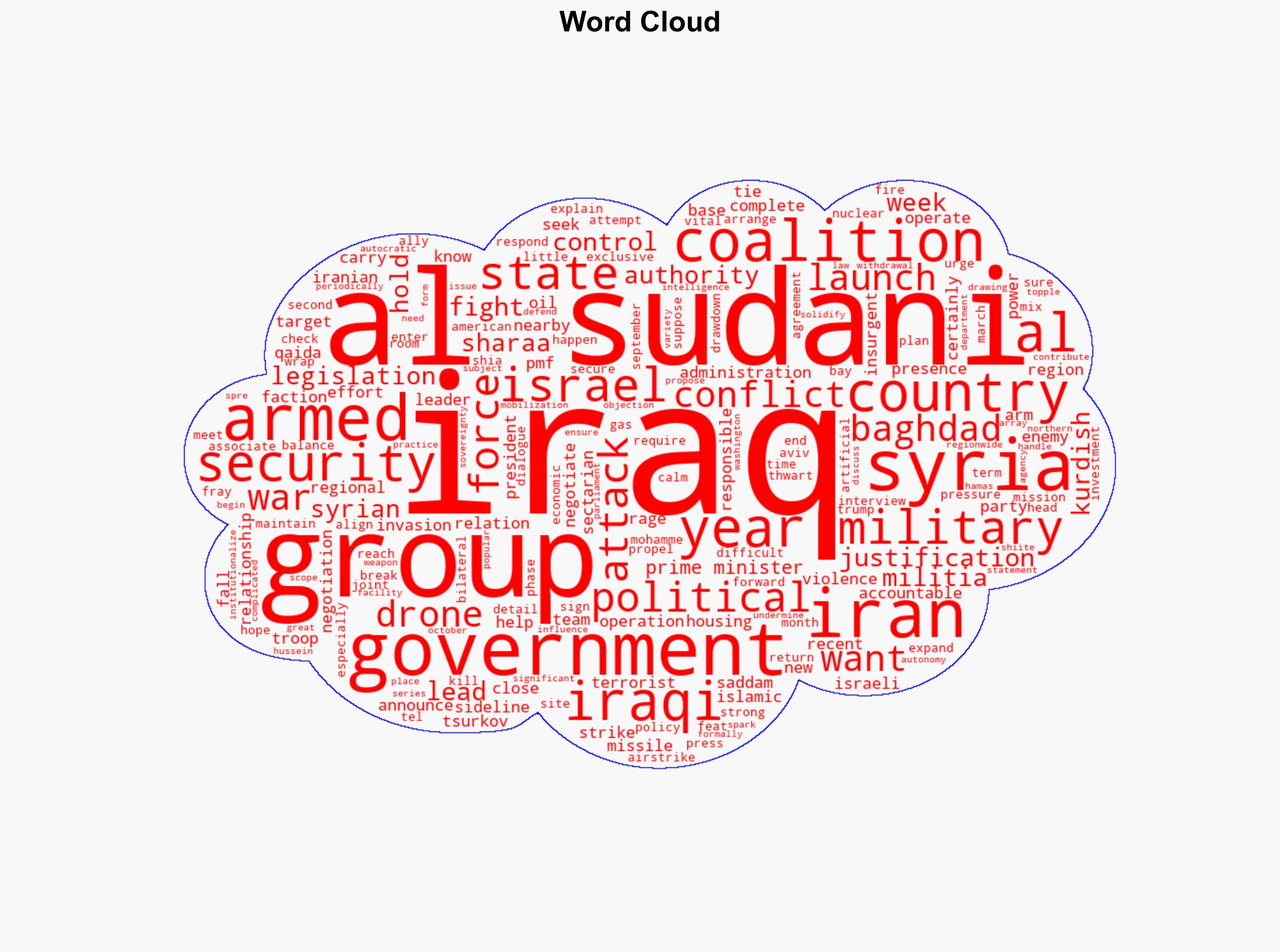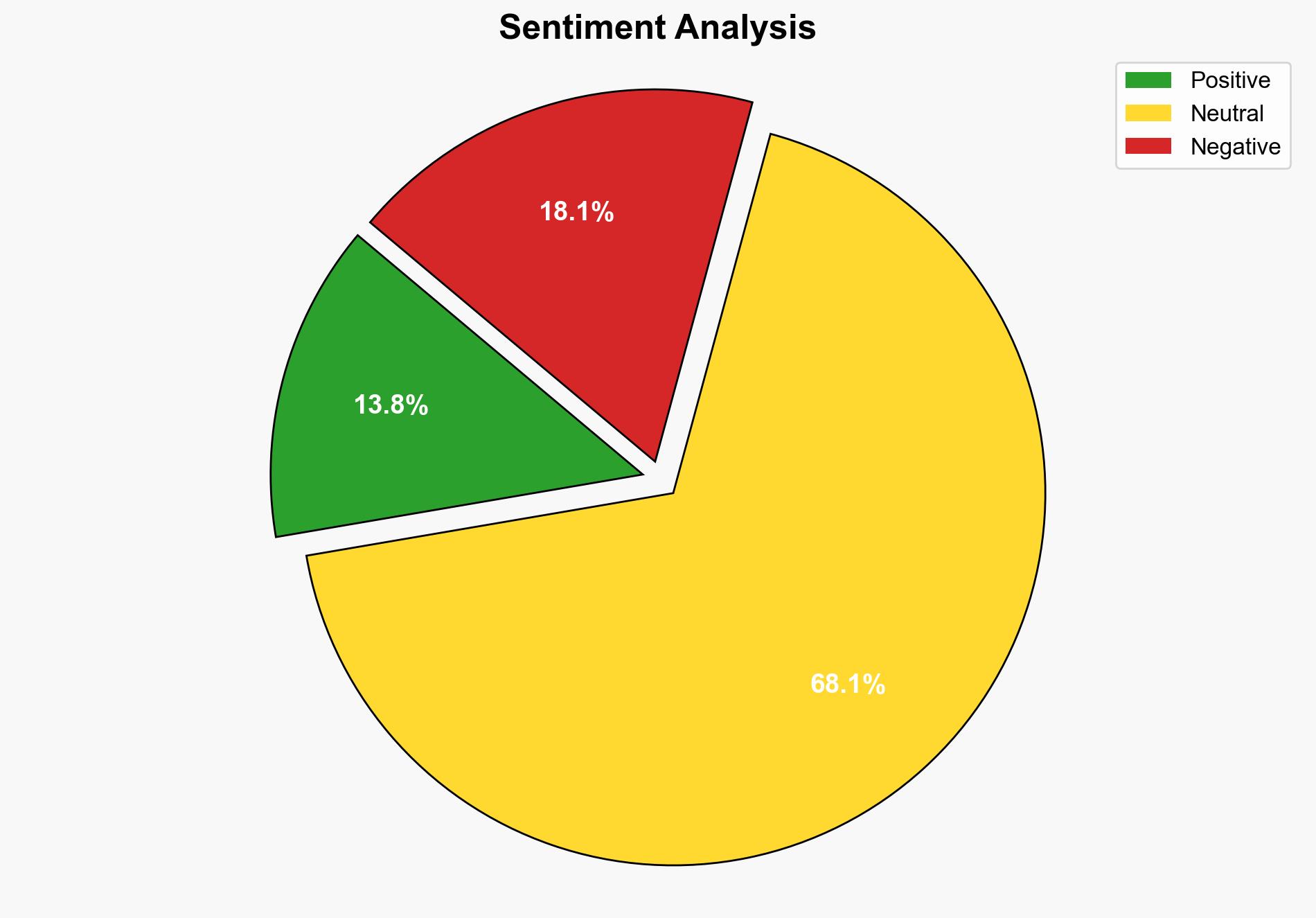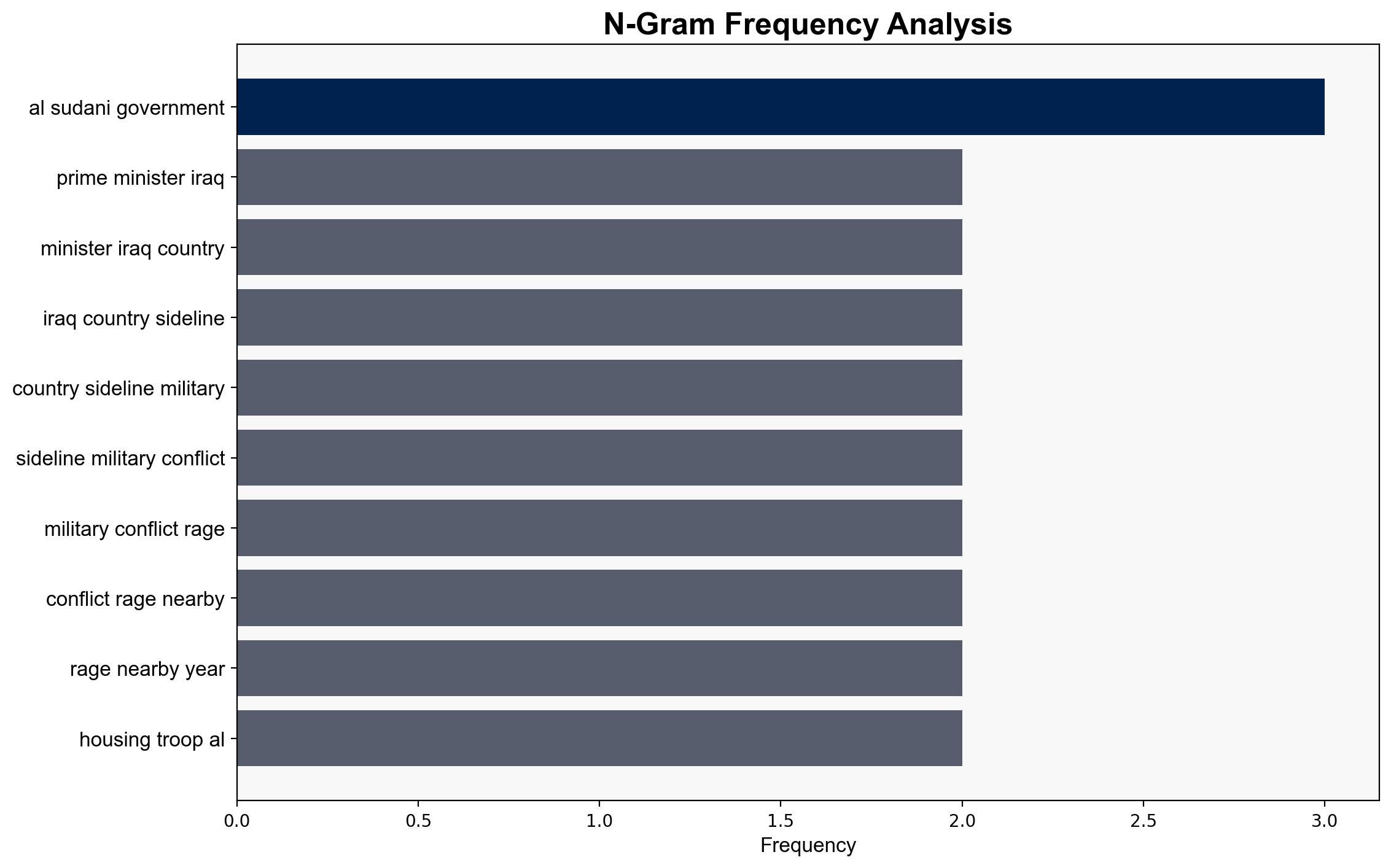Iraq’s prime minister seeks closer US ties while keeping armed groups at bay – ABC News
Published on: 2025-07-29
Intelligence Report: Iraq’s Prime Minister Seeks Closer US Ties While Keeping Armed Groups at Bay – ABC News
1. BLUF (Bottom Line Up Front)
The most supported hypothesis is that Iraq’s Prime Minister is attempting to balance relations with the US and Iran to maintain internal stability and prevent escalation of regional conflicts. Confidence level: Moderate. Recommended action: Support diplomatic efforts to stabilize Iraq’s internal security dynamics and encourage dialogue between conflicting regional powers.
2. Competing Hypotheses
1. **Hypothesis A**: The Prime Minister is genuinely seeking to strengthen ties with the US to secure economic investments and regional stability while managing the influence of Iran-backed armed groups.
2. **Hypothesis B**: The Prime Minister’s overtures towards the US are primarily a strategic maneuver to gain leverage over Iran-backed groups and consolidate internal power, rather than a genuine shift in foreign policy alignment.
Using ACH 2.0, Hypothesis A is better supported due to the Prime Minister’s public statements and actions, such as thwarting missile attacks and advocating for dialogue. However, Hypothesis B cannot be dismissed given the complex political pressures and historical ties with Iran.
3. Key Assumptions and Red Flags
– **Assumptions**: It is assumed that the Prime Minister has the autonomy to shift foreign policy and that US-Iraq relations can be improved without significant backlash from Iran.
– **Red Flags**: The lack of clear evidence regarding the Prime Minister’s control over Iran-backed militias and the potential for misinterpretation of his intentions by both domestic and international actors.
– **Blind Spots**: The internal dynamics and decision-making processes within Iran-backed groups remain opaque.
4. Implications and Strategic Risks
– **Patterns**: The Prime Minister’s balancing act reflects a broader regional trend of states attempting to navigate between US and Iranian influences.
– **Cascading Threats**: Failure to manage these relations could lead to increased militia activity, destabilizing Iraq and potentially drawing in regional powers.
– **Potential Escalation**: Missteps could lead to direct confrontations between US and Iran-backed forces in Iraq, escalating into a larger regional conflict.
5. Recommendations and Outlook
- Encourage diplomatic engagement between Iraq, the US, and Iran to reduce tensions and foster dialogue.
- Support capacity-building initiatives for Iraq’s security forces to enhance their ability to manage internal threats.
- Scenario Projections:
- Best Case: Successful diplomatic efforts lead to reduced militia activity and increased foreign investment.
- Worst Case: Breakdown in talks results in increased violence and regional instability.
- Most Likely: Continued balancing act with periodic flare-ups of militia activity.
6. Key Individuals and Entities
– Mohammed Shia al-Sudani
– Iran-backed militias
– US and Iranian government representatives
7. Thematic Tags
national security threats, cybersecurity, counter-terrorism, regional focus





